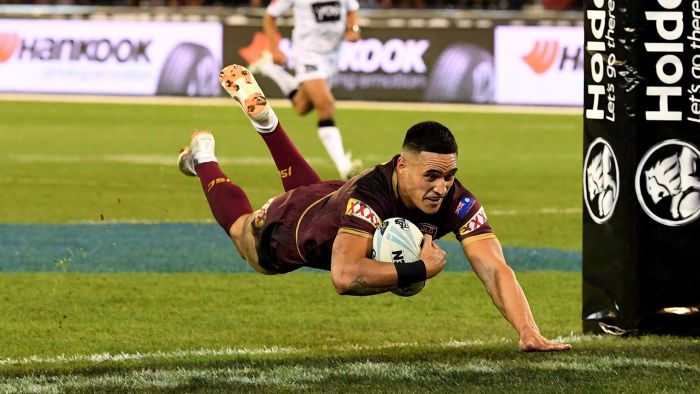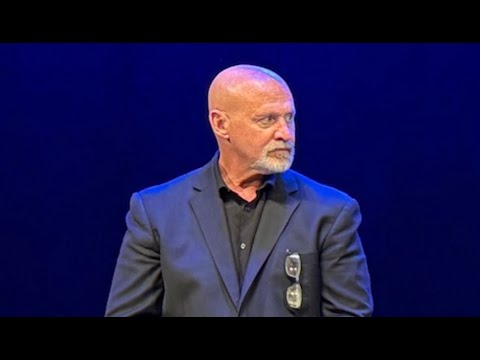One week after Queensland shocked New South Wales in the State of Origin opener, the old rivals meet again this Wednesday in Sydney.
The focus will be on changes within both teams, and just who can handle the pace of the game.
Here are a few things to watch out for and share with your fellow fans.
Multi-dimensional Cody
Souths’ five-eighth Cody Walker has been sensationally drafted into the NSW starting side, replacing the Roosters’ Luke Keary, in the wake of the Game I defeat.
While Keary is a master of tempo and initiating attack, Walker is a more powerful runner.
He has been a nightmare for centres all year and will test Queenslanders Kurt Capewell (if he plays) and Dane Gagai — his Rabbitohs club-mate — in one-on-one contests.
But if Queensland hope to counter his running threat with immediate pressure, they could end up exposing themselves.
Walker is a master of outsmarting would-be tacklers by sitting deep enough to give him time to make the right pass or evasive move.
A new danger for NSW
The loss to injury of AJ Brimson, one of the game’s form players, is a blow to Queensland.
A man who shone this year as one of rugby league’s best broken play runners and support options, Brimson was key to the Maroons.
The Titans fullback — not premiership-winning five-eighth Cameron Munster or captain Daly Cherry-Evans — was the focus of their first meaningful attacking set play last week.
His replacement, Valentine Holmes, has also been known for his speed, evasion and line-breaking ability in the early part of his career.
But after a year out of the NRL trying to make it in American football, Holmes seems to be becoming more influential as a backline ball player.
His nine try assists this season was his best ever season tally, in just 12 games. Some echo the Maroons’ Brimson play above.
All three Queensland tries in the first game came from NSW errors in midfield.
They can’t expect such generosity this Wednesday and Holmes is well-positioned to help.
Controlling the tempo
The set restart, a rule which most believe has sped up play in the NRL this season, was deployed in Origin for the first time last Wednesday.

During the broadcast, former NSW half Andrew Johns declared it was a “faster” Origin. A GPS tracking innovation reported that during the second half the speed of the game increased by 12 per cent. And Queensland halfback Daly Cherry-Evans echoed the common thinking afterwards, noting “the ruck speed, once it gets moving, it’s bloody quick”.
However, it’s not clear how much impact the set restart rule actually had. Just four were called in the match, and while that may have been enough to make players think twice about ruck delays, all were in the first half and none led to points.
A look at the flow of play shows the second half flowed much more than the first, and it was during this period Queensland mounted their comeback.
But given the influence of set restarts on the NRL this year, it’s only a matter of time before they help determine an Origin match.
Wily Maroons play the clock
The Maroons protected their lead well, partly thanks to the professionalism with which Queensland players managed the clock.
Late in the match, Jai Arrow went down for cramp, allowing his teammates precious seconds to refresh. It turned out he could move pretty well in making the very next tackle.
With just moments left, Felise Kafausi took 10 seconds off the game clock by slowing the ruck. Then he earned his team another 20 seconds of rest by not leaving the field when sin-binned. By the end, even teammate Phillip Sami was urging him off.
In a similar scenario in Game II if Queensland is protecting a series-winning lead, expect even more cunning.
The second match in the State of Origin series will be held on Wednesday evening in Sydney.







